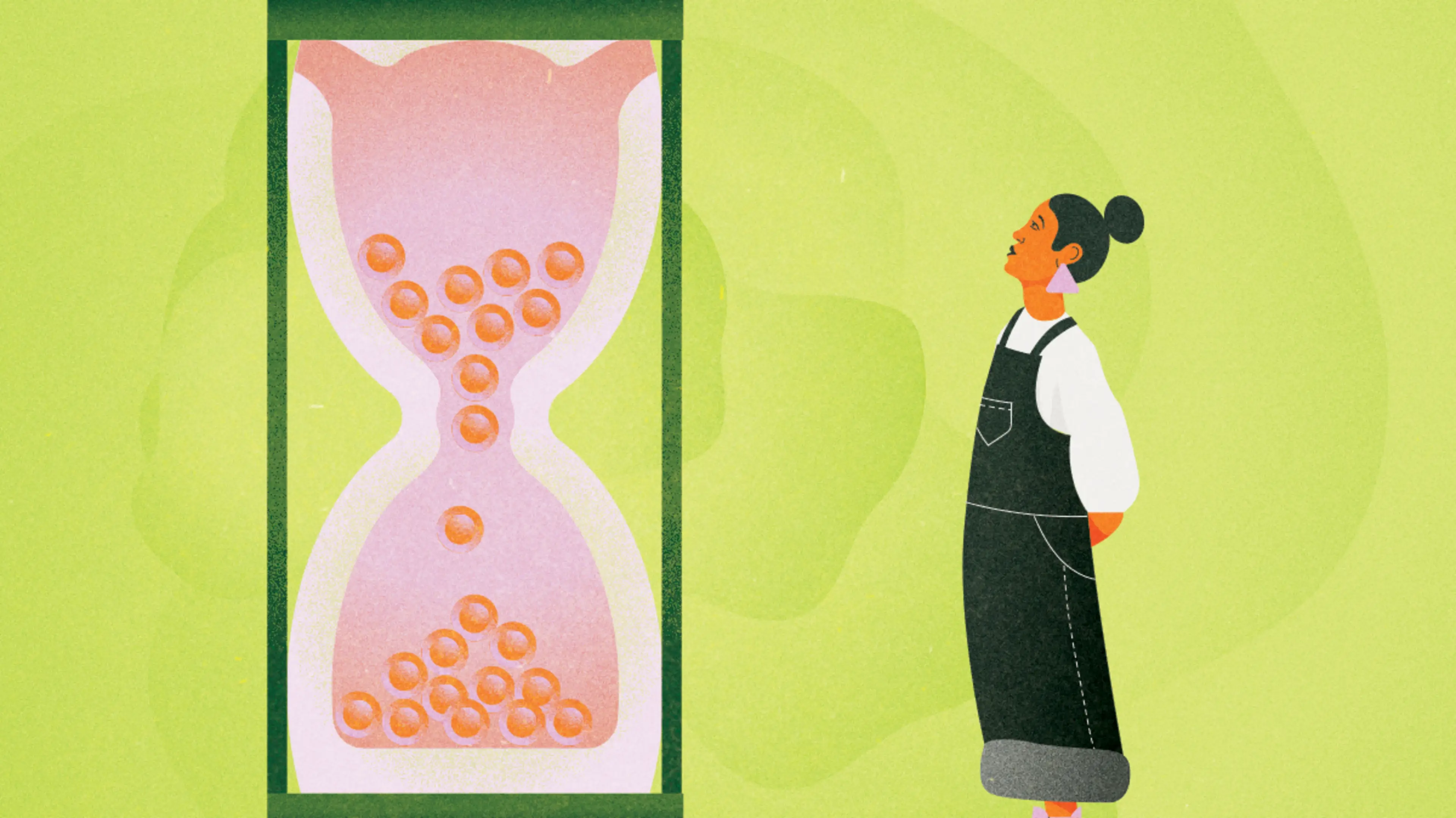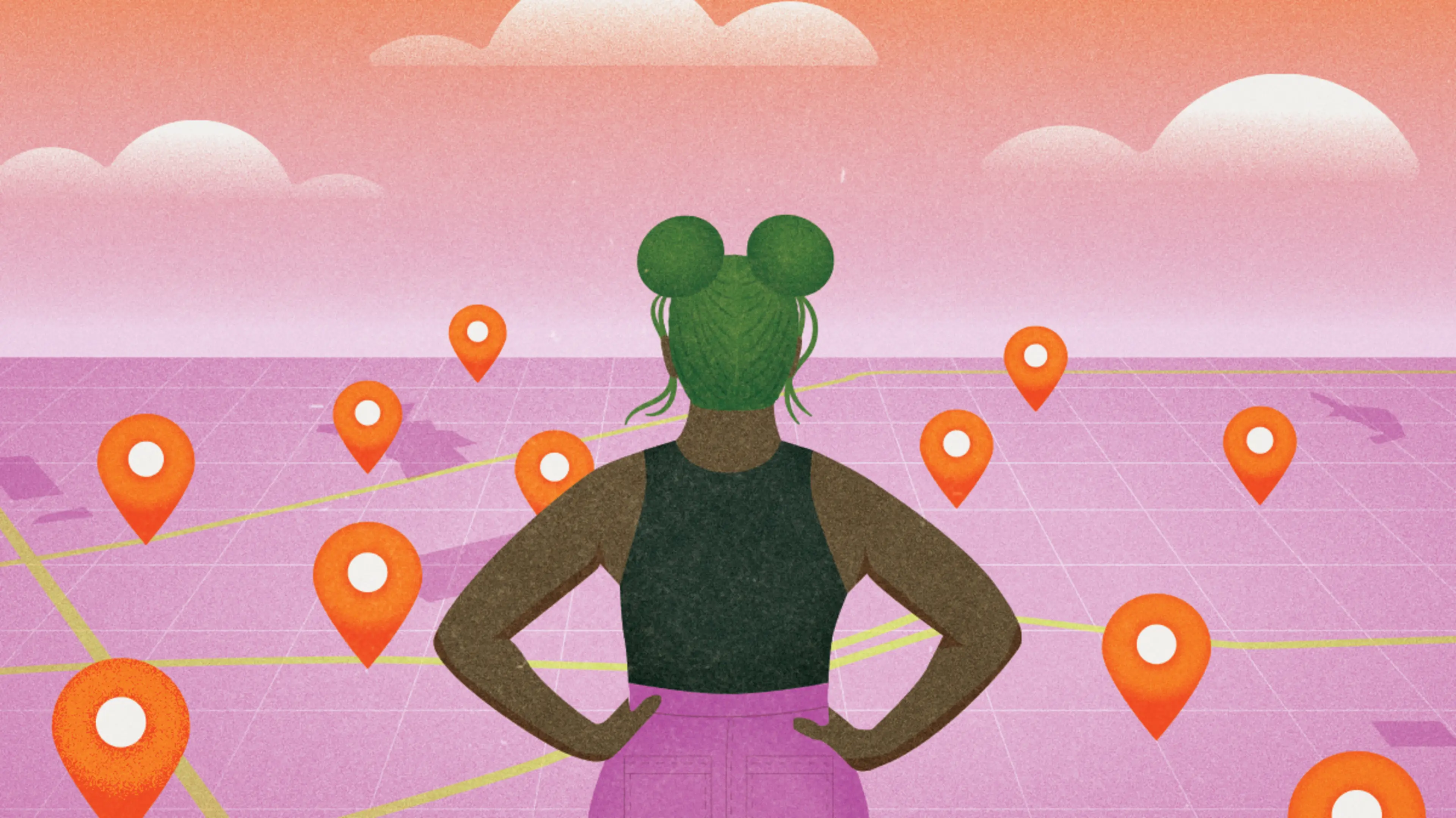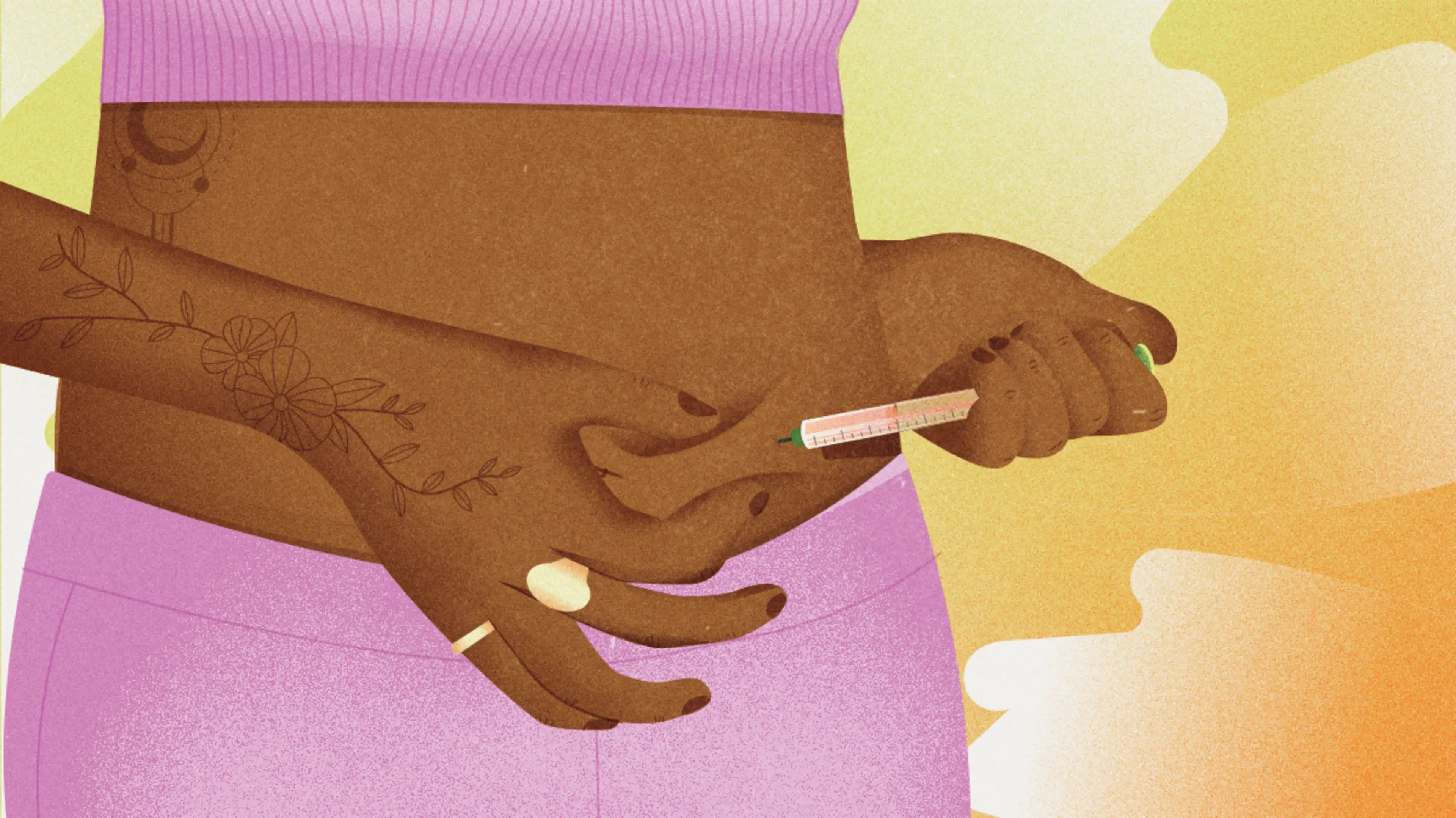If you’re considering freezing your eggs, you likely feel overwhelmed by information. Recent headlines on egg freezing have ranged from calling egg freezing “an expensive lottery ticket” to Jennifer Aniston lamenting, “I would've given anything if someone had said to me, 'Freeze your eggs.’” While this medical procedure can be both costly and intense, it also provides an opportunity for you to think hard about what you hope your future will look like.
At its most basic, egg freezing is a way to preserve younger, healthier eggs. Some people choose this path due to medical concerns that may affect their fertility, like undergoing chemo, while others see it as an insurance policy that will allow them to safeguard their fertility while deferring the big baby-making decisions. While there are no guarantees, the general idea is that your eggs at 33 will be healthier than your eggs at 40, just as those at 28 will be healthier than those at 33.
Prior to 2012, egg-freezing (oocyte cryopreservation if you’re fancy) was an experimental procedure limited to those with a medical need to preserve fertility. That year, the American Society for Reproductive Medicine removed the “experimental” label, and about 2,500 people froze their eggs in the United States. A decade later, in 2021, that number shot up to 24,500 — an increase of 1,000%—and has shown no signs of slowing down.
The good news is that egg retrieval is the most physically difficult and expensive part of the IVF process, so if you use your frozen eggs later (and that’s a big if—one recent study found only 12% of people used their frozen eggs1 ), you will have already done the hard part. However, it’s important to understand that while egg freezing can provide peace of mind for many who want to preserve their fertility or defer their family planning decisions, it does come with some uncertainties.
“I always emphasize that freezing eggs is never a guarantee,” says Dr. Angela Kelley, a reproductive endocrinologist at Aspire Fertility. “Freezing eggs or embryos can provide additional opportunities to try for future pregnancy, but we can never promise that a baby will result from frozen eggs or frozen embryos.” In fact, it’s difficult to find data on how successful the procedure is.
Here’s an overview of what to expect if you decide to freeze your eggs: what is involved in every step of the medical procedure, the financial hurdles you could face, and the next steps you might want to start thinking about.
First Up: Doctor Consultation
To better understand what this process will look like for you, get thee to a fertility clinic. Your doctor, specifically, a reproductive endocrinologist or a fertility specialist, will cover two things in your initial visit:
Your medical history and family plans: your gynecological history, your family’s fertility history, as well as how many children you think you might want and when you want to start.
An assessment of your ovarian reserve via blood tests and a transvaginal ultrasound.
Quick biology lesson: You are born with all the eggs you will ever produce in your lifetime, around 1-2 million. However, eggs rapidly die off (at a rate of around 1,000 per month) due to age or ovulation. The number of eggs you have left at any point in time is what’s known as your ovarian reserve. Although it’s impossible to calculate this number directly, your doctor can get an estimate of your reserve by running tests.
While normally only one egg is released during ovulation, your follicles actually prep additional eggs that are eliminated by the body after not being picked for ovulation. The egg retrieval process works by trying to turn as many of those spare eggs into the chosen ones as possible. The hope is that multiple eggs will grow into maturity and be successfully captured and frozen during the retrieval process.
(Note that undergoing egg retrieval does not mean you’re diminishing your egg reserve and bringing on early menopause. You’re simply using eggs that otherwise would have been discarded during that cycle. Tech bros may call this “optimizing.”)
The blood test to determine your ovarian reserve will test your follicle-stimulating hormone (FSH) and your anti-Mullerian hormone (AMH).
FSH tells your follicles to mature eggs; a high level of this hormone could mean a reduced ovarian reserve.
AMH is made by follicles, so the more of it you have, the more active follicles you have. A low level of this hormone could mean a reduced ovarian reserve.
For the transvaginal ultrasound, which is done a few days before you begin ovulating, your doctor will look at how many follicles are ripening eggs. This can give a reasonable expectation of how many eggs you could potentially retrieve, although this number can vary by cycle.
One of the big fertility uncertainties is that there is no test to determine your egg quality. As you and your eggs age, they are more likely to decrease in quality (have chromosomal abnormalities) and that—combined with the fact that your ovarian reserve diminishes steadily over time—is why most doctors recommend freezing your eggs in your 20s rather than your 30s. Plus, if you have a low ovarian reserve, it’s better to know sooner rather than later.
So, with that biology lesson in mind, is there a “too late” to consider freezing your eggs?
“I have struggled with this as a doctor,” says Dr. Jaime Knopman, reproductive endocrinologist at CCRM Fertility of New York. “There are nearly no babies born with eggs that are frozen at over 42 years old. [After that age] you go through all of the shots and the procedure and the finances and the emotions and are left with <10% chance of success. I am not going to tell a patient they can't do it, but I will have a long conversation about the success.”
“There are other important predictors of egg quality—lifestyle factors such as smoking, nutrition, and weight, in addition to medical factors such as endometriosis or PCOS,” Dr. Kelley adds. “However, the strongest predictor of egg quality is age. If possible, I encourage my patients to freeze their oocytes prior to age 37, based on published data on this topic.”
Growing Your Eggs
Once your doctor has determined you are a good candidate for egg freezing and sets reasonable expectations with you, the not-so-fun stuff (shots and surgery) begins.
There are three parts to egg freezing: ovarian stimulation, egg retrieval, and freezing.
For ovarian stimulation, your doctor will prescribe a cocktail of injectable medications to trick your body into growing and maturing as many eggs as possible over a period of 10-14 days. You’ll likely take three types of (expensive) medications: one to grow eggs, one to mature eggs, and then one to prevent ovulation, which means giving yourself multiple shots once or twice a day (trust me, it probably won’t be as bad as you think). The doses will be tailored to you and your ovarian reserve, with the goal of creating as many mature eggs as safely possible—on average, somewhere between 10 and 20 eggs for people under 38. (Remember, this is just an average.) This is to ensure that you’ll have enough to make it through the reproductive Hunger Games that is creating embryos, when the eggs are thawed and inseminated and when, on average, half of the contestants (in this case, your blastocysts) are eliminated at each stage of the process.
(Keep in mind that these medications usually do not come from the pharmacy down the street. More often, you’ll work with an online specialty pharmacy that will ship them to your house.)
If you don’t know your doctor very well yet, you’re about to. While you are injecting the medications, you will go in for an appointment approximately every other day so your doctor can monitor how the eggs are maturing by measuring their size. (Yes, this means many transvaginal ultrasounds in your future). If the eggs aren’t maturing properly, you may have to start over—which unfortunately means you’ll have to reorder those costly medications, though this scenario is likely rare. While it’s estimated that 5-35% of people are “low responders” to IVF medications2 , Dr. Knopman says she almost never cancels a cycle for a low response: “If a patient has a low reserve and we treated her appropriately, then I won't cancel—changing the protocol doesn't always change the outcome or improve the chances.”
Toward the end of this process, you may not feel so great—many describe it as the worst period bloat ever. Your body is swimming in hormones and growing more eggs than it’s used to, so you’ll need to be very gentle with it: no strenuous exercise and no sex to prevent your ovaries from twisting and/or cysts rupturing.
Finally: Retrieving & Freezing
Once your eggs are mostly mature, your doctor will schedule your retrieval and tell you to take a trigger shot exactly 36 hours before that time. This gives your eggs one last boost to mature and prepare to be released. It’s also your final shot for this procedure—hooray!
Egg retrieval is a surgery. You’ll show up to the clinic about an hour before your procedure so an anesthesiologist can put you under and administer pain meds. Once you’re out, your doctor will put a needle through your vaginal wall and retrieve the eggs you worked so hard to grow. You will likely be given antibiotics to prevent infection.
Your eggs will immediately be whisked over to the fertility lab, where they will be examined under a microscope. The mature ones will be treated with a kind of medical antifreeze to prevent damage from ice crystals, and then they will be flash-frozen in -196°C liquid nitrogen in a process called vitrification. While you will immediately hear how many eggs were retrieved after you wake up from your beauty sleep, you should find out from your doctor within a day or two how many of those were mature and able to be frozen.
Prepare to wake up and not feel so great. You’ll need someone to drive you home and stay with you for a few hours. Doctors generally advise you to take the day off of work as you’ll likely be groggy and might have some cramping. Plan to spend 1-2 days having a lot of quality time on the couch.
How Much Does Egg Freezing Cost?
It’s almost impossible to estimate the costs for freezing your eggs because the process varies so widely between individuals. For example, for my egg retrieval medications, the price without insurance would have been around $4,000. They billed my insurance $15,000, and my out-of-pocket cost ended up being $120. (So, if you have a dollar limit on your fertility insurance, it may be better to self-pay for your medications). I’m also incredibly lucky to have had fertility coverage through my employer—most people do not.
The medications, the every-other-day monitoring, the anesthesiologist—none of it is cheap. Forbes recently estimated out-of-pocket costs for a single egg retrieval 3 at $15,000 to $20,000 for those without insurance, plus an additional $500 to $1,000 each year to store your eggs. Furthermore, Dr. Knopman estimates that 50% of her patients do more than one round of egg freezing. Keep in mind that using frozen eggs also necessitates doing IVF—another expensive medical procedure.
Other Considerations
Freezing your eggs is not a guarantee that you will be able to get pregnant. Here are a couple of other points to consider:
First and foremost, there is no standardized, reliable data yet on how successfully freezing your eggs leads to a live birth. A study at NYU4 found that 39% of women who froze and used their eggs had a baby. A 2023 study at a UK hospital also provided a meta-analysis of past studies. It found that patients under 35 years old who froze at least 15 eggs had a 70% chance of a live birth5 , while older women needed at least 20 frozen eggs to get that chance. However, the meta-analysis also illustrates the problem with getting this data, as some studies measured success in births per woman and others in births per embryo transfer. There is a calculator that can provide an estimate of success based on age and eggs retrieved. It’s important to remember that egg freezing is still an evolving field, and best practices and success rates can change.
Egg retrieval is not a comparison game. Dr. Kelley explains, “Sometimes I see young, healthy individuals who are disappointed by the number of eggs retrieved during a single cycle. I try to remind them NOT to compare themselves to their friends, co-workers, or social media influencers who may have obtained a higher quantity of eggs. Future fertility potential is based on so much more than just the number of available frozen eggs—for instance, sperm health, uterine health, and other maternal factors. Ultimately, we cannot predict exactly how many eggs will survive the thawing process, and how many of those surviving eggs will then fertilize successfully, result in a competent embryo, and successfully implant into the uterus to result in an ongoing pregnancy.”
Freezing embryos, rather than just eggs, provides more information. As Dr. Knopman puts it, “When an egg is frozen you have no way of knowing if it will create a viable pregnancy. When an embryo is created, it is forced to grow and divide in the lab and therefore demonstrate competence.” Embryos can also be genetically tested for abnormalities. But—and it’s a big but—creating embryos requires fertilizing eggs, which cannot exactly be unfertilized if you want to use different sperm later.
Egg freezing is still an evolving field, but one that has provided many people with the gift of time and peace of mind. It’s also an intensely personal choice, based on your values and expectations. While the cost, physical discomfort, and lack of certainty make it a more complicated offering than some medical marketing might have you believe, for a growing number of people, it’s worth it.









